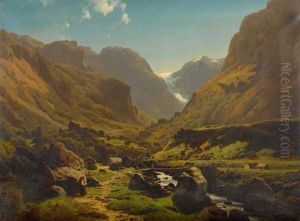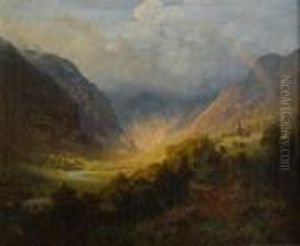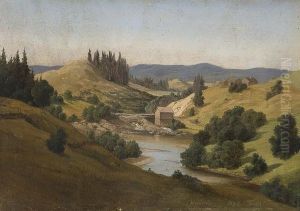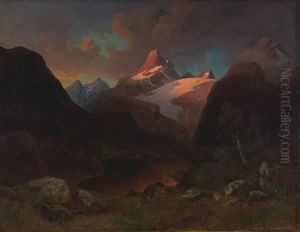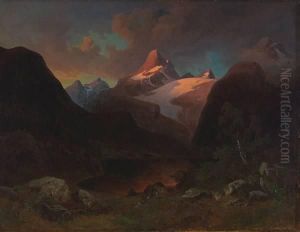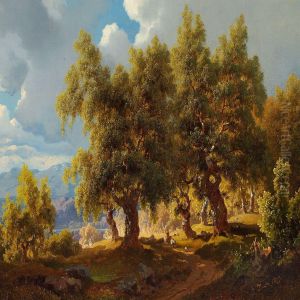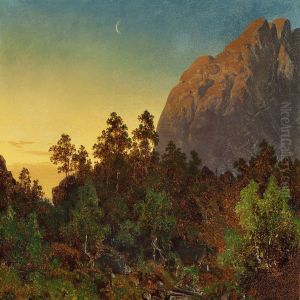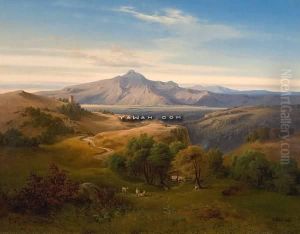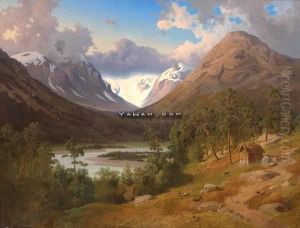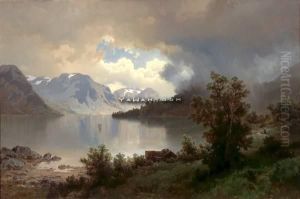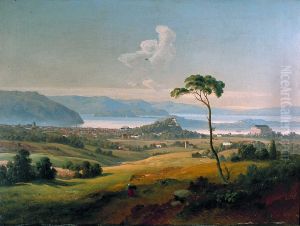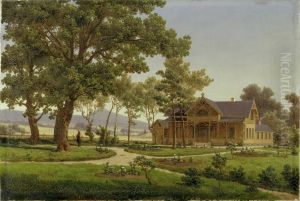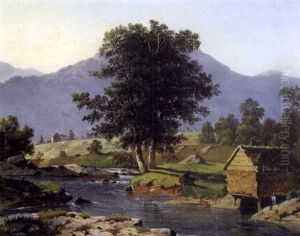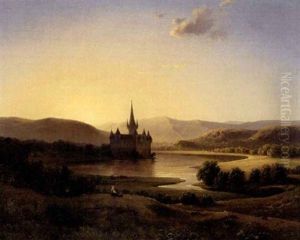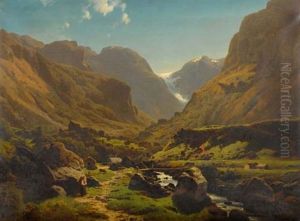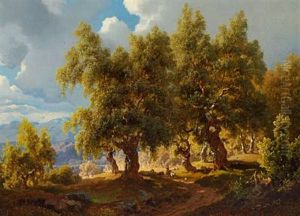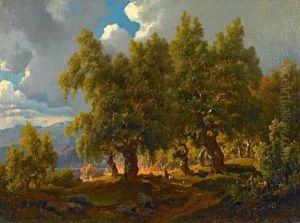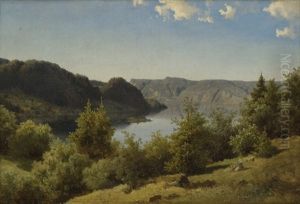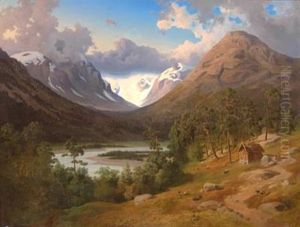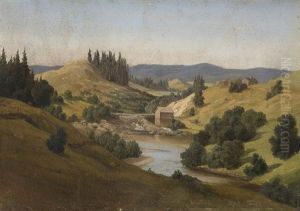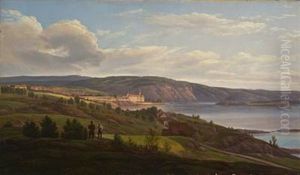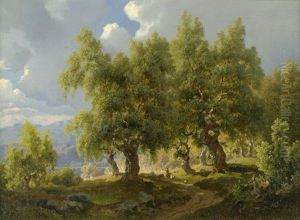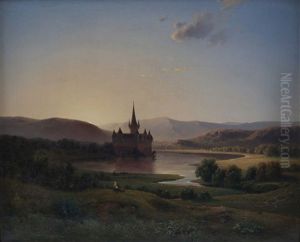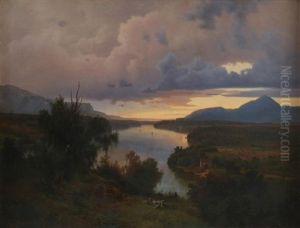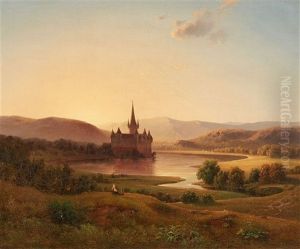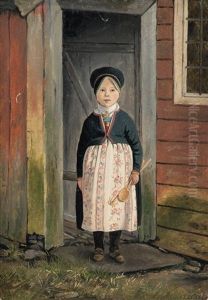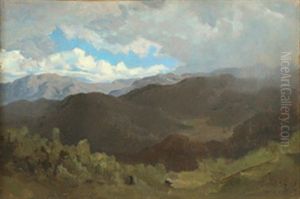Joachim Frich Paintings
Johan Christian Clausen Dahl, often known as J. C. Dahl or I. C. Dahl, was a Norwegian artist who is considered the father of Norwegian landscape painting. Born on February 24, 1810, in Bergen, Norway, Dahl's early life in the picturesque surroundings of his hometown had a profound influence on his future artistic endeavors.
Dahl initially studied architecture in Copenhagen, but soon his interest shifted towards landscape painting. This was influenced by the works of the Danish Golden Age, particularly those of C.W. Eckersberg. Dahl's talent was quickly recognized, and he became a central figure in the Copenhagen art scene.
He traveled extensively throughout Europe, which greatly influenced his style. A significant period was spent in Dresden, Germany, where he became friends with the renowned painter Caspar David Friedrich. Friedrich's romantic, moody landscapes had a lasting impact on Dahl's work.
Dahl's paintings are characterized by a romantic portrayal of the Norwegian wilderness, capturing the majestic mountains, waterfalls, and forests with a dramatic interplay of light and shadow. He was a master of depicting different weather conditions and times of day, creating atmospheric scenes that evoke a sense of the sublime.
Throughout his career, Dahl also played an essential role in the establishment of art institutions in Norway and was an influential teacher, mentoring several generations of Norwegian artists. His works were widely appreciated during his lifetime and continue to be celebrated for their contribution to Norwegian national identity.
Dahl's dedication to his craft and his homeland was evident in his art. He passed away on October 14, 1858, in Dresden, but his legacy lived on, inspiring many future artists and solidifying his place as a cornerstone of Norwegian cultural heritage.
